Opinion
WHEN WIND BLOWS: Who are and will be the true and sincere stakeholder in Nigeria?

Nigerians, politicians and political party’s manifestoes has not, and will not work here in Nigeria in the nearest future, going by the current status quo.
All our current crop of Public servants (elected and appointed) does not have any stake in our Public sectors. adsbygoogle || []).push({}); googlesyndication.com/pagead/js/adsbygoogle.js">
Like the two women, laying claim to one child during King Solomon’s reign, as recorded in the Scriptures, the woman who truly owns the child, having a stake on the child’s welfare and well-being, refused for the child to be shared into two. While the other woman who don’t have any stake on the child, agreed for it to be shared.
Until and unless we shop for those who are willing to have their stake in our Public sectors, those occupying our Public space will always agree for our own child to be shared.
How do we get those that will have a stake in our Public sectors? It’s when we insist that whoever will occupy our Public space, MUST patronize all our Public Institutions, Facilities, Systems and Infrastructures.
And the starting point is, for them to have their own children and wards in our Public Schools. What they are doing now is, like some cook who are not willing or ready to savour the taste of the meal they prepare and serve. Who among us will be willing to eat such meal, and continue to engage the services of such cook?
Anything short of this, will amounts to business as usual.
Author Profile
Latest entries
 OpinionMay 11, 2020WHEN WIND BLOWS: Who are and will be the true and sincere stakeholder in Nigeria?
OpinionMay 11, 2020WHEN WIND BLOWS: Who are and will be the true and sincere stakeholder in Nigeria?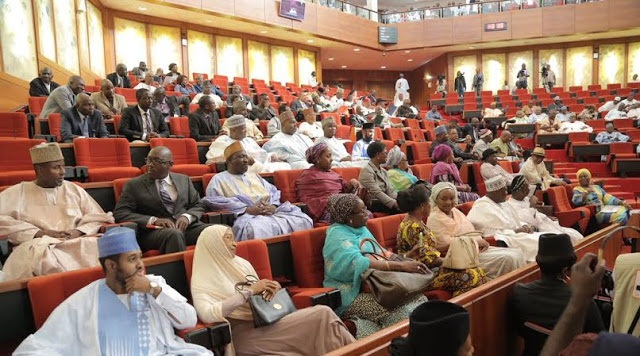 When Wind BlowsMay 6, 2019When Wind Blows: Whose Responsibility Is It To Take The Bull By The Horn?
When Wind BlowsMay 6, 2019When Wind Blows: Whose Responsibility Is It To Take The Bull By The Horn? OpinionApril 11, 2019“When Wind Blows” Lobbying & Lobbyists.
OpinionApril 11, 2019“When Wind Blows” Lobbying & Lobbyists. OpinionApril 9, 2019When Wind Blows: Regulatory Failures All Over The Place
OpinionApril 9, 2019When Wind Blows: Regulatory Failures All Over The Place
Opinion
Religious Freedom in Nigeria: Beyond Religious Elites and Political Agendas

By Felix Samari, Abuja
In recent years, the issue of religious freedom in Nigeria has gained international attention, often prompting foreign governments—especially the United States—to evaluate the country’s status regarding Freedom of Religion or Belief (FoRB).
adsbygoogle || []).push({});
googlesyndication.com/pagead/js/adsbygoogle.js">
Religious freedom violations in Nigeria occur in various forms, some deliberate and others unintentional. Often, individuals or institutions engage in discrimination without recognizing it as a violation of fundamental rights.
For instance, a highly qualified teacher may be denied employment at a school because their faith differs from that of the institution’s majority. Such a decision may stem from an ingrained fear that an outsider’s beliefs could influence students, even when the candidate’s professional competence is unquestionable.
Beyond such workplace discrimination, there is a broader climate of religious unwelcomeness that permeates various aspects of Nigerian society. Religious minorities frequently find themselves excluded from key social and economic opportunities. However, these realities are rarely the focus of discussions led by Christian and Muslim religious leaders, who dominate the FoRB discourse both locally and internationally.
It is often claimed that Nigeria is on the brink of religious domination—either by Islamization or Christian evangelization. Such claims, however, fail to acknowledge the competitive nature of religious influence in the country. Both Islam and Christianity wield significant power and enjoy government-backed privileges, including state-funded pilgrimages, the allocation of land for places of worship, and religious programs on public media.
While Christians express concerns about a supposed agenda to “Islamize” Nigeria, Christian evangelism aggressively extends to every corner of the country. Churches, billboards, and loudspeakers amplify Christian messages in predominantly Muslim areas, just as Islamic preachers do the same in Christian-majority zones. Meanwhile, smaller religious groups—such as traditional worshippers or atheists—struggle for recognition and protection under the same legal and social frameworks.
One of the most glaring issues with how the international community addresses religious freedom in Nigeria is its reliance on the perspectives of religious elites. Western policymakers often engage with well-established church leaders or Islamic clerics who frame their communities as perpetual victims. This narrow approach overlooks the diverse experiences of everyday Nigerians who face religious discrimination without the backing of powerful institutions.
Consider the recent case in Sokoto State, where gunmen abducted worshippers from a mosque. Had this been a church, international media would have reacted with much greater urgency. This discrepancy highlights the selective attention given to certain religious groups while ignoring the broader security and humanitarian crises affecting all Nigerians, regardless of faith.
Religious conversion is a right. People are free to become Christians, Muslims, or follow any other belief system. However, the failure of religious leaders in Nigeria goes beyond conversion battles. Instead of using their influence to promote unity and development, many have fueled division, fostering distrust among religious groups.
While religion remains a central force in Nigerian society, it should not overshadow more pressing national concerns. Economic instability, poor governance, and security challenges affect Nigerians across religious lines. Yet, these systemic issues receive far less attention than religious grievances in public discourse.
If the United States and other international bodies genuinely want to address religious freedom violations in Nigeria, they must go beyond consulting religious elites. A more comprehensive approach should involve direct engagement with affected communities, independent investigations, and objective assessments of FoRB violations. No single religious group possesses the power or resources to impose a national faith on Nigeria’s diverse population of over 220 million people.
It is time for global actors to recognize that Nigeria’s challenges extend beyond religious identity. By shifting their focus to structural injustices, economic inequalities, and governance failures, they will better understand the true obstacles to religious freedom—and, more importantly, contribute to lasting solutions.
*Samari, a FoRB trainer based in Abuja, Nigeria, coordinates media projects focused on Freedom of Religion or Belief.*
Author Profile

- Prince Abdulrahman Obaje is a Media, Information and Computer Technology Consultant. A quintessential Journalist, online marketer, social media strategist, Mathematician and Computer Scientist is based in Abuja, Nigeria. He is the Founder and the Publisher of The Informavores!. You can reach me on +234 805 939 5252 or send i-witness report directly to me on news@informavores.com.ng.
Latest entries
 EventApril 20, 2025Easter: Ajia Felicitates Christians, Calls for Prayers, Unity and National Rebirth
EventApril 20, 2025Easter: Ajia Felicitates Christians, Calls for Prayers, Unity and National Rebirth NewsApril 7, 2025What NLM National Leader, ThisDaysMoses Tells Followers On Birthday Anniversary, Full Text
NewsApril 7, 2025What NLM National Leader, ThisDaysMoses Tells Followers On Birthday Anniversary, Full Text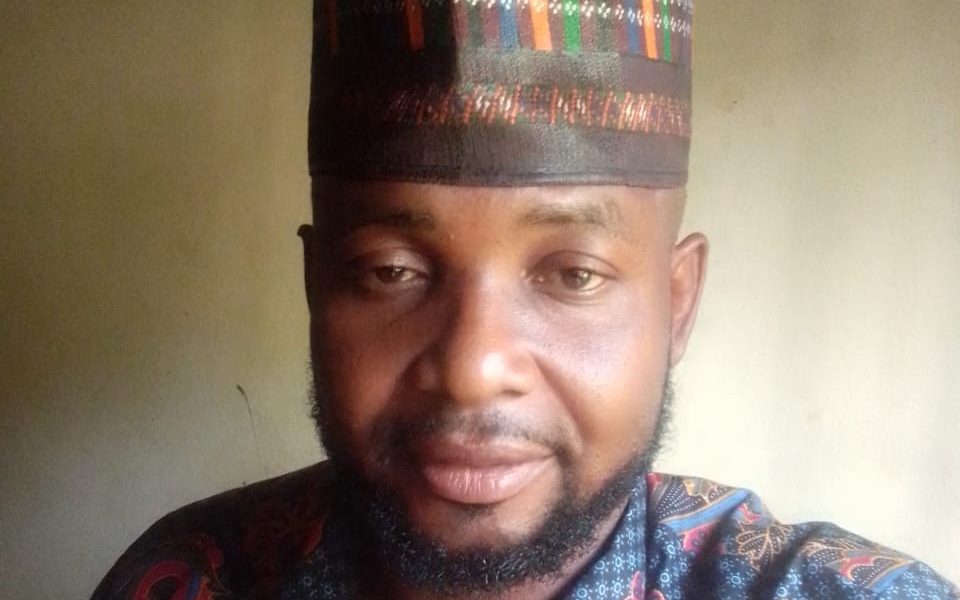 ReligiousMarch 30, 2025ICDA Chaiman, Ahmed Usman Felicitates with Igalas On the Occasion of Ide-l- Fitri
ReligiousMarch 30, 2025ICDA Chaiman, Ahmed Usman Felicitates with Igalas On the Occasion of Ide-l- Fitri NewsMarch 28, 2025Upscaling Organic, Agroecology practices key to healthy living – Experts
NewsMarch 28, 2025Upscaling Organic, Agroecology practices key to healthy living – Experts
Opinion
A note on the proposed August 1st protest
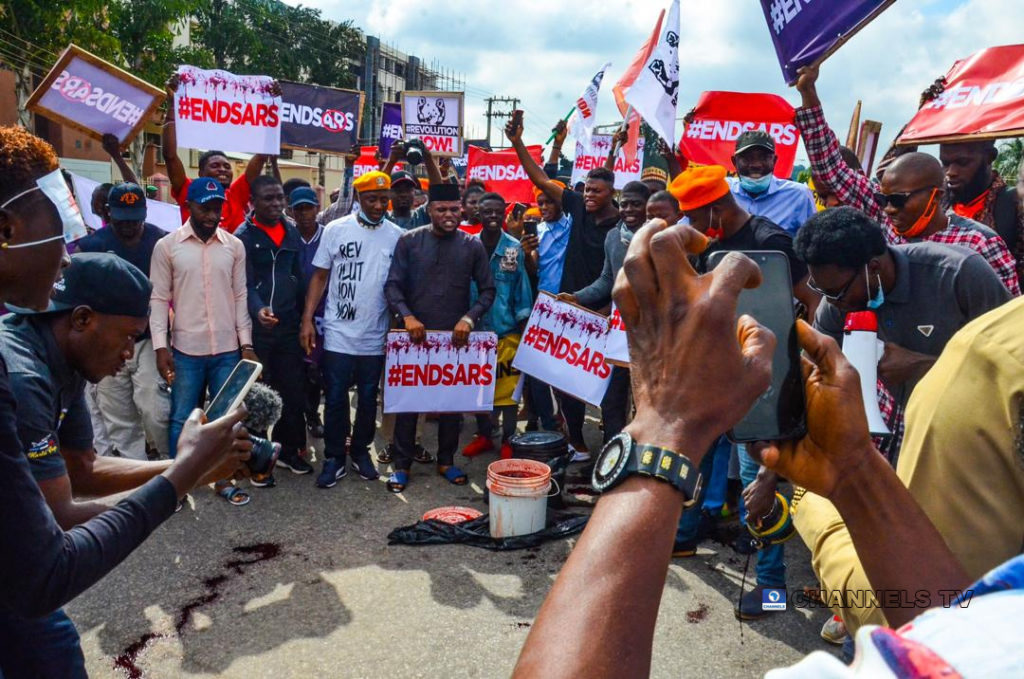
By Abdulrahman Obaje
Before we embark on the proposed August 1st protest, let us take some lessons from past protests in the country and around the world.
In Sudan, the anti-austerity protest that started in December 19th, 2018 over the price of bread and fuel were initially focused on living costs – but soon demonstrators also started demanding that Mr Bashir step down.
At that time, many Sudanese believed there is going to be significant change in their country. But in 2021, tens of thousands of Sudanese returned to the streets again, angry over soaring prices for the same necessities.
Sahar Al Jazouli, a member of a grassroots group Al Kalakla Abu Adam Resistance Committee that helped organize one of the protests, said people are fed up with skyrocketing inflation.
Saying that, “The demands that we have been making since the time of President Bashir are still the same, and the high cost of living is at the top of them, and these demonstrations going on right now are a right that we earned through our civilian revolution,” Al Jazouli told VOA’s South Sudan in Focus then.
The transitional government recently removed subsidies for fuel and other items, as part of economic reforms demanded by the International Monetary Fund.
Days after the fuel subsidies were eliminated in October, 2020 the price of diesel doubled. In the two months that followed, prices for a loaf of bread and a kilowatt of electricity more than tripled.
Mohamed Ali Fazari, editor-in-chief of the online newspaper Khartoum Today, said some protesters are demanding that the entire transitional government be removed if conditions do not improve quickly.
He said different people have different agendas in the latest protests, including the Sudanese Professional Association, a group that mobilized many protesters in 2019.
“The other group is the communist parties and others that are against the economic policies of the government, and the other group which has another agenda like the Islamists and followers of the ousted regime,” said Fazari.
Both Fazari and Al Jazouli said the remaining pro-Bashir officials in office were looking to exploit the protests to undermine the transitional government and create chaos but the overwhelming majority of protesters were on the streets to demand better living conditions, not to remove the government.
Down the line economic situation and hardship in Sudan has not abate. Bread and other food commodities prices are soaring. As reported by reliefweb located at https://reliefweb.int/report/sudan/sudanese-dying-hunger-omdurman-food-prices-rise-daily on July 21st, 2024, People are reportedly dying of hunger in the old Omdurman neighbourhoods of El Mulazemin and Abrof. Prices of basic consumer goods in the markets of Omdurman witnessed a large increase week before, ranging from 33 to 50 per cent.
Sheikh El Amin Omar, leader of the Sudanese El Gadiriya El Mukashfi Sufi order, explained in a phone call from his compound, in the Wad Nubawi neighbourhood in old Omdurman that people in El Mulazemin and Abrof are suffering from famine amidst a deteriorating security situation.
All the soup kitchens (takaya in Arabic) in old Omdurman have stopped working. The area of old Omdurman, regained by the Sudanese Armed Forces (SAF) from the Rapid Support Forces (RSF) in February, is not very secure. “He who does not die by the fire of weapons, dies of famine”, he told Radio Dabanga.
Partly, the economic problem in Sudan and other places may not be unconnected with the global economic situation which is on a downward trajectory.
According to Numbeo located at https://www.numbeo.com/cost-of-living/, as at July 2024, though Rent in Ghana is, on average, 51.9% lower than in Nigeria, A family of four estimated monthly costs are 2,047.7$ without rent. A single person estimated monthly costs are 570.3$ without rent. Cost of living in Ghana is, on average, 27.5% higher than in Nigeria.
The average cost of a loaf of bread in the US is around $2.50. In South Africa, it is approximately $0.981. However, if you buy from local shops or tuck shops, the price may be higher, around R14.50 for white bread and R17.00 for brown bread.
The economic situation in the country is dire. From fuel to every other commodities, things are no more affordable. The National Bureau of Statistics (NBS), said Nigeria’s food inflation rate hit a record high of 40.66 percent in May 2024, surpassing the previous month’s 40.53 increase. Cadre Harmonisé analysis, in its March 2024 release approximated that 4.8 million people in Borno, Adamawa, and Yobe states are experiencing severe food insecurity, the highest level in seven years.
However, violent protest and unrest has not help bring succour to Sudan. Violent protest will not bring the immediate changes we desire. A selfish protest organiser will not tell you this.
And let us observe those calling for the protest. Let us scrutinise their background and be sure it is not in their selfish interest. Let us be sure that their family members, even abroad would come down to join the protest. Do not let anybody cajole us to embark on a selfish and disastrous protest that will spell doom for our future. Let us use our head!
Instead, the Civil Society Organisations, professional bodies and individuals should engage more with the federal government and make their findings and activities public.
We know that the Federal Government is trying but it should do more by engaging the Civil Society Organisations, professional bodies, opposition parties and individuals to alleviate the immediate and long term suffering of the masses, as this type of suffering is strange to our people
Prince Abdulrahman Obaje writes from Ordu Kingdom.
Author Profile

- Prince Abdulrahman Obaje is a Media, Information and Computer Technology Consultant. A quintessential Journalist, online marketer, social media strategist, Mathematician and Computer Scientist is based in Abuja, Nigeria. He is the Founder and the Publisher of The Informavores!. You can reach me on +234 805 939 5252 or send i-witness report directly to me on news@informavores.com.ng.
Latest entries
 EventApril 20, 2025Easter: Ajia Felicitates Christians, Calls for Prayers, Unity and National Rebirth
EventApril 20, 2025Easter: Ajia Felicitates Christians, Calls for Prayers, Unity and National Rebirth NewsApril 7, 2025What NLM National Leader, ThisDaysMoses Tells Followers On Birthday Anniversary, Full Text
NewsApril 7, 2025What NLM National Leader, ThisDaysMoses Tells Followers On Birthday Anniversary, Full Text ReligiousMarch 30, 2025ICDA Chaiman, Ahmed Usman Felicitates with Igalas On the Occasion of Ide-l- Fitri
ReligiousMarch 30, 2025ICDA Chaiman, Ahmed Usman Felicitates with Igalas On the Occasion of Ide-l- Fitri NewsMarch 28, 2025Upscaling Organic, Agroecology practices key to healthy living – Experts
NewsMarch 28, 2025Upscaling Organic, Agroecology practices key to healthy living – Experts
Opinion
Tinubu’s Subsidy Removal And The Albatross Hunting Nigerians, by Rayyan Alhassan

Fuel subsidy removal by the present administration of President Bola Tinubu has come with a thunderous alarm. Although the intention may be good, pure and sincere, and in fact it is even noble but the reality now is that it is severely haunting everyone. adsbygoogle || []).push({}); googlesyndication.com/pagead/js/adsbygoogle.js">
Both the haves and haves-not are wailing. It is dealing a fatal knockout punch on teeming citizens, whose lives have since been made miserable and wretched. The Nigerian economy had almost strangulated them.But it appears that the ‘ill-conceived’ idea to abruptly end the payment of subsidy by the Federal Government will finish the ‘job’. Less than two months after the ‘Petrol Subsidy is Gone’ proclamation by the President, on the occasion of his May 29 inauguration as Nigeria’s 16th leader, life has become unbearable and hopeless for many Nigerians.
Survival is now only for the fittest. The hope that their ugly fortunes will turn around under a Jagaban Presidency may just be fading away, or so it seems. The hue and cry over the subsidy removal may have since simmered. But the painful groaning by citizens will not just end. Nigerians are already battling to cope with the new normal of soaring transportation costs, and food prices’ inflation, among other negative impacts of the subsidy policy review.
With the harsh economic reality now starring everyone on the face – except the political class, possibly – the few men and women of good conscience left among us, who additionally have Tinubu’s ears must not remain docile. If it is possible, they should impress Mr. President to totally backtrack his decision on fuel subsidy. It will be patriotic, if not exemplary.
Tinubu has no choice but to wade in. He must arrest the socio-economic bedlam, triggered by not only the subsidy removal he singularly orchestrated. But the recent hike in the price of Premium Motor Spirit, PMS. On Tuesday, 18th July 2023, the Nigerian National Petroleum Company Limited, NNPCL, offered Nigerians a ‘sumptuous desserts’.
But the desserts were not the ones that will be nutritious to the body. That is just how we should describe the hike of fuel price to N617 from N537, by the NNPCL. The NNPCL and its apologists have attributed the latest increment to market forces at play.
But the organized Labour and other workers’ unions, together with some prominent Nigerians won’t stomach it. The Nigerian Labour Congress, NLC, described the recent increase in pump price as a threat to the socio-economic well-being of the citizens. It feared that the price of fuel would hit N1,000 per litre soon.
As for the Nigerian Union of Journalists, NUJ, the new price regime of PMS is an “over kill”. “We are saddened by the fact that today, most people can hardly commute to work or other places of business without too much stress, because the embarrassing sudden surge in petrol prices has made it so,” the NUJ said, in a statement issued by Shuaibu Usman Liman, its National Secretary.
The arbitrary hike of fuel cost to N617 will absolutely hurt Nigerians, and in many diverse ways too. For instance, it will make a large section of the country’s population fall deeper below the poverty net, while consumer spending’, and purchasing power will depreciate.
On one hand, the petrol hike has the potential to prevent manufacturers from producing below their targeted capacities, even as so many firms operating as private sector organisations will be forced to downsize their workforce. As things stand now, the cost of most goods and services have already hit the rooftop. And if care is not taken, Nigeria should be preparing to battle looming food insecurity, together with other life-tormenting emergencies.
With Boko Haram fighters, the Islamic State of West African Province (ISWAP) terrorists, armed bandits, oil thieves, kidnappers and a host of other criminals already holding the country to ransom, this hike will blow only an ill wind. It is verily going to escalate all sorts of criminalities in the land, as many youths and citizens get impoverished. This should not be what is heralding the Tinubu era, in Nigeria’s modern evolution.
Meanwhile, contrary to what many of us are forced to believe, Nigeria is not the only country in the world that subsidizes energy products like petrol or even some basic public services that its citizens enjoy. In fact, developed or advanced nations like the United States, France, Germany and the United Kingdom, UK, also do.
About $50 billion is what the United States is estimated to be spending annually to subsidize fossil fuel energy derivatives, including petrol and diesel for its citizens. Last year alone, two world superpowers – China and Russia – expended a mind-boggling $130 billion and $30 billion to subsidize energy, respectively for their citizens. And this is because they prioritize energy security as a matter of national security.
How about the UK? It has a $100 billion rolling subsidy scheme [energy price cap] for energy consumers in the country. Germany, on the other hand, is proposing to spend €5 billion this year alone, in subsidizing energy for manufacturers. Norway, another European nation, has already extended subsidy on electricity for its citizens into 2024.
It is ironic that Nigerian government officials, some ignorant citizens and arm-chair economists are hailing Tinubu for ending the subsidy regime. How they fail to realize that abrogating subsidy is the surest way of impoverishing teeming Nigerians. But they need to be enlightened.
Unlike Nigeria, oil-producing countries like Saudi Arabia, Kuwait, Angola, Venezuela and Iran are not contemplating doing away with it (subsidy), at least for now. On the contrary, they are providing generous subsidies for a range of fossil fuel energy derivatives like petrol, diesel and cooking gas for their citizens, as benefits of their natural endowments with hydrocarbons.
Let everyone who cares to listen, especially our leaders, know that corruption, low productivity, insecurity and mismanagement of Nigeria’s oil and gas assets and resources, are chief reasons the country is finding it difficult to meet its obligation of energy security to its citizens, unlike the aforementioned countries.
The idea of dishing out palliative items and provisions to distraught citizens will be welcomed, at any time. But only an insensitive government would have gone ahead with the disbursement of the proposed N8,000 handout as palliative to a phantom 12 million low-income Nigerians.
That President Tinubu eventually made a volte-face on the ‘sharing’ of the worthless N8,000 to some ‘poor citizens’ is one informed decision that has saved his government’s face. But it won’t be erasing the scar of bruises or heal the injury of the subsidy removal, many Nigerians suffered.
That is why Mr. President must think out-of-the-box in engineering a practical solution to the hardship citizens have been experiencing, since the Day One of his administration, following a pronouncement made without careful thought for the masses and their plights. To yearn for the days of the fuel subsidy will be wishing Nigeria doom.
But of what use is a policy directive that inflicts only pain, rather than ameliorate the collective hardship citizens are facing? I will leave that to you, the reader, and then of course, those who are presently saddled with the responsibility of sailing the Nigerian ship to the Promise Land, to ponder over.
As for our dear President Bola Ahmed Tinubu, an ample opportunity is still waiting for you to correct one perceived wrong against Nigerians. I am talking about ending fuel subsidy payments, without putting in place necessary measures to cushion the prevailing socio-economic turmoil in our polity.
Mr Alhassan, a social critic, wrote from Abuja
Author Profile
Latest entries
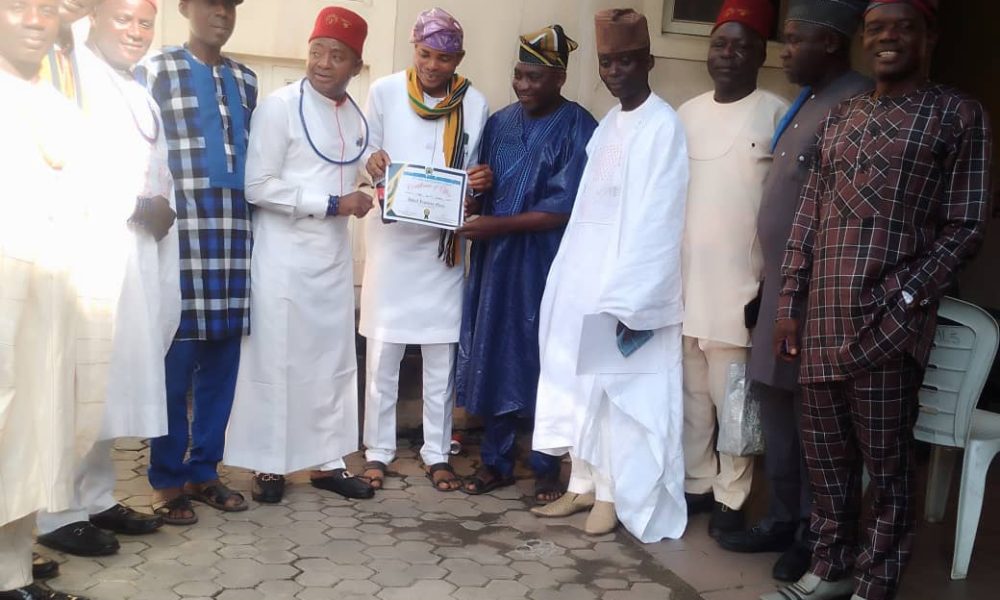 NewsOctober 30, 2024Naija Youth Rebirth Congratulates Abdulrahman Obaje on Inauguration, Says Position Well Deserved
NewsOctober 30, 2024Naija Youth Rebirth Congratulates Abdulrahman Obaje on Inauguration, Says Position Well Deserved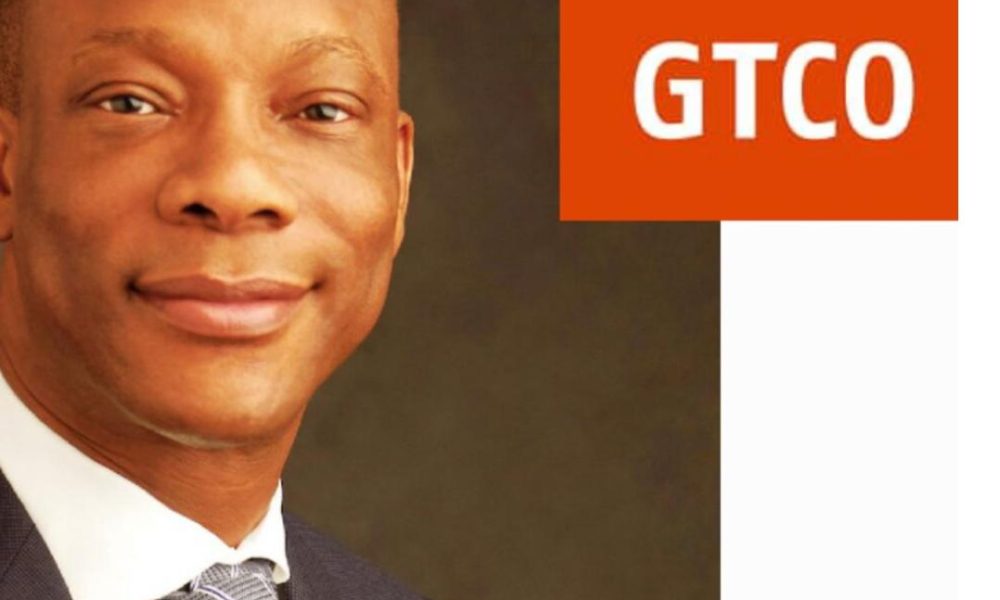 NewsOctober 8, 2024Report Claims Guaranty Trust Bank Involved In Financial Foul Play, Unsolicited Accounts Opening, Forex Manipulations, Others
NewsOctober 8, 2024Report Claims Guaranty Trust Bank Involved In Financial Foul Play, Unsolicited Accounts Opening, Forex Manipulations, Others NewsApril 18, 2024Alleged N80.2billion Money Laundering: EFCC Declares Immediate Kogi Ex-Governor Yahaya Bello Wanted
NewsApril 18, 2024Alleged N80.2billion Money Laundering: EFCC Declares Immediate Kogi Ex-Governor Yahaya Bello Wanted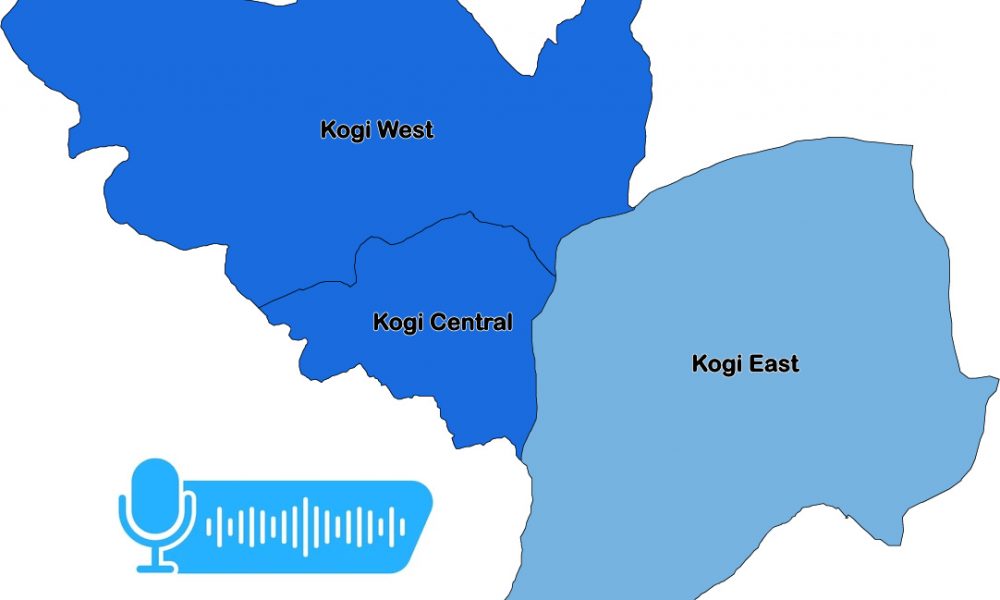 NewsNovember 6, 2023Another Massive Plan By APC To Rig Kogi Election Uncovered!
NewsNovember 6, 2023Another Massive Plan By APC To Rig Kogi Election Uncovered!


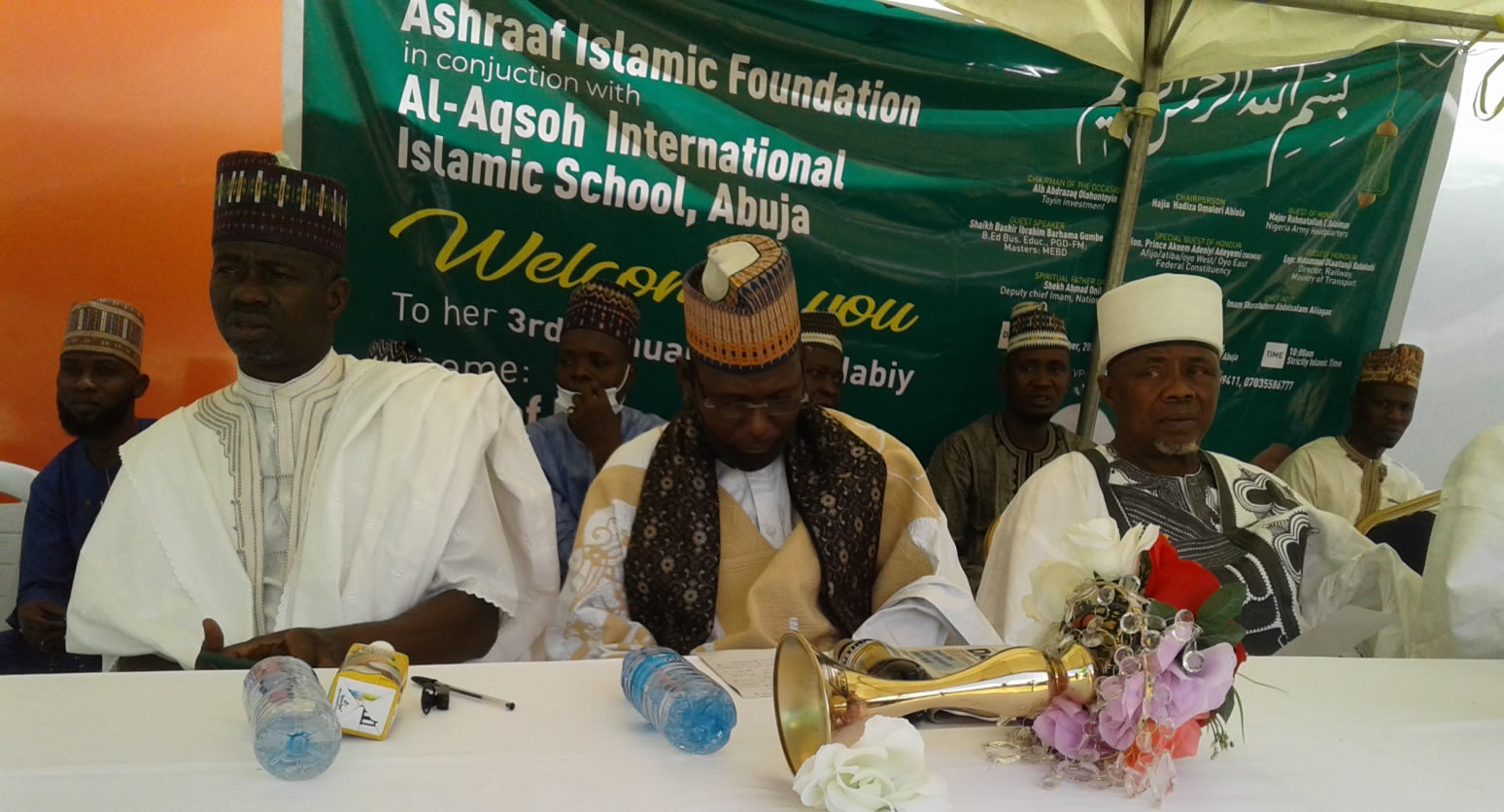
 Arabic
Arabic Chinese (Simplified)
Chinese (Simplified) Dutch
Dutch English
English Filipino
Filipino French
French German
German Hausa
Hausa Igbo
Igbo Italian
Italian Latin
Latin Portuguese
Portuguese Russian
Russian Spanish
Spanish Swedish
Swedish Turkish
Turkish Yoruba
Yoruba Zulu
Zulu